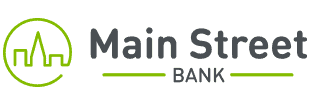It’s been proven time and again; you don’t have to be a business school graduate to run and manage a successful business. Some of the most successful entrepreneurs have built their businesses on passion, talent, and of course, hard work. But if you do own a business, it’s important to understand some important financial terms to help you assess the health of your business and plan for the future.
Here are 10 of them:
- Assets. Your assets are the things your business owns that are of value and can be turned into cash. Examples of assets include your cash, properties, accounts receivable (see below), equipment, and inventory.
- Liabilities. The opposite of your assets, your liabilities are the financial debts or obligations of your business. Liabilities include loans, accounts payable (see below), payroll, and wages/salaries.
- Expenses. Your expenses are the monthly costs that are part of the operation of your business. Expenses may include rent, utilities, salaries, and business supplies.
- Accounts payable. Accounts payable refers to money that your business owes to creditors and suppliers. Your accounts payable is considered a liability of your business.
- Accounts receivable. In contrast to accounts payable, accounts receivable is an asset made up of the money that others owe to your business that has not yet been collected.
- Balance sheet. Your balance sheet is an important financial statement that provides a picture of the financial health of your business. Listed on the balance sheet is a summary of your assets and liabilities.
- Income statement. Also referred to as a profit and loss statement, the income statement is another important financial report that shows the financial health of your business. It details your total sales minus your total costs, which reflects the bottom line of your business.
- Capital. In essence, capital is the money needed for a business to deliver its goods and/or services.
- Working capital. Working capital is the amount of capital that is required for the business to conduct its daily operations.
- Cash flow. Cash flow is the amount of operating cash that flows in and out of a business. If more money is coming into your business than going out, you have positive cash flow. Conversely, if you have more money going out, you have negative cash flow. Your cash flow is an important indicator of the financial health of your business.
Now here’s the exciting part; a financial institution that is your business’s resource. Our Branch Managers and our Business Lenders are your personal link to your business banking solutions. That frees your time up to do what you do best – run your business.

